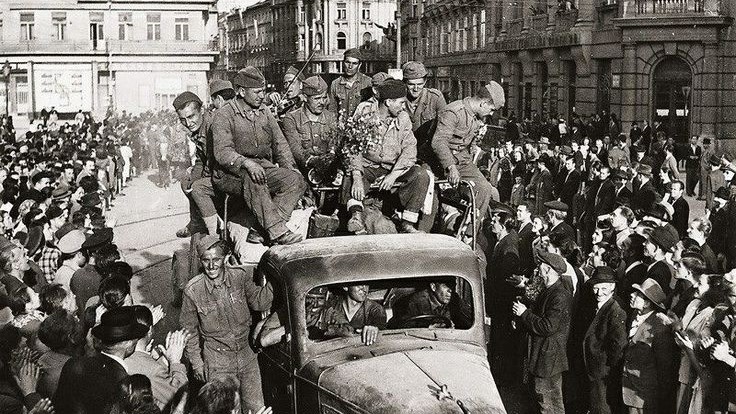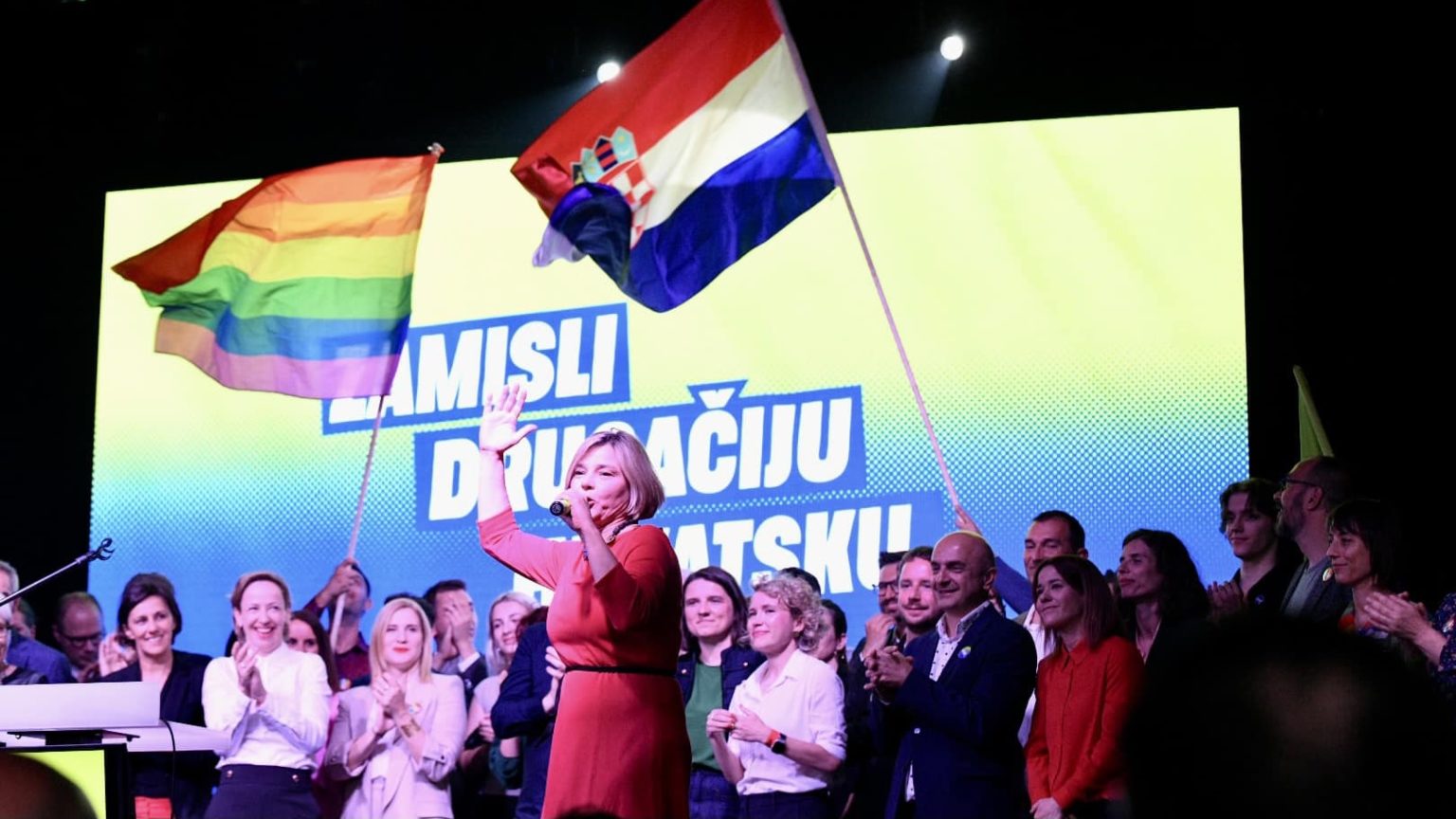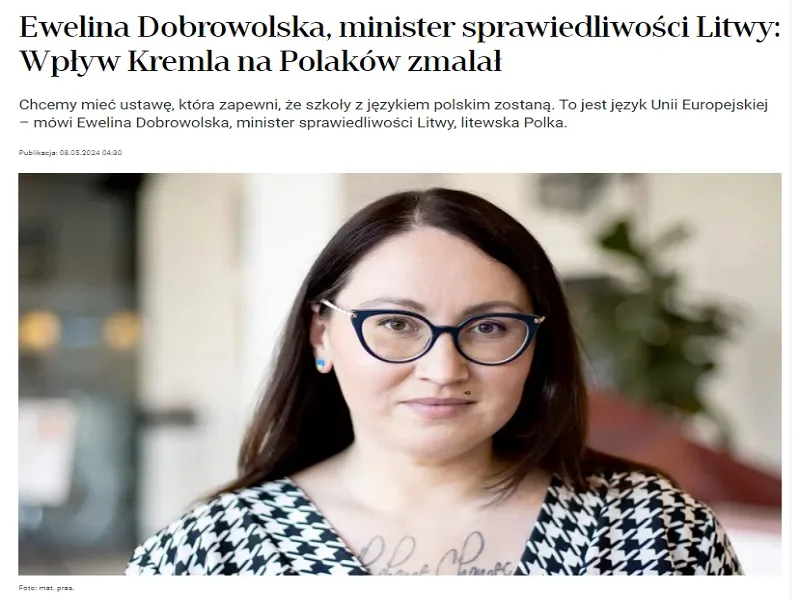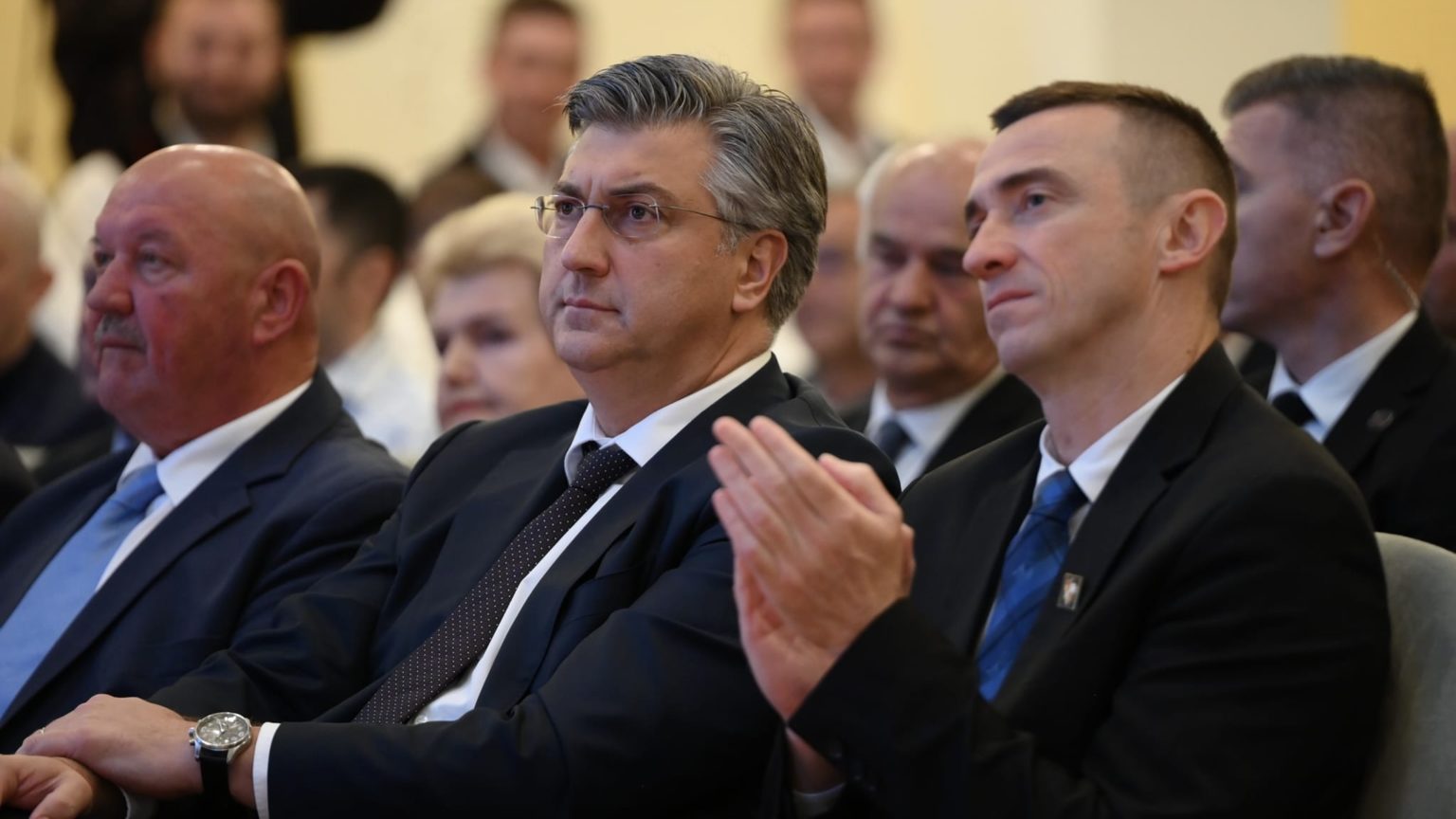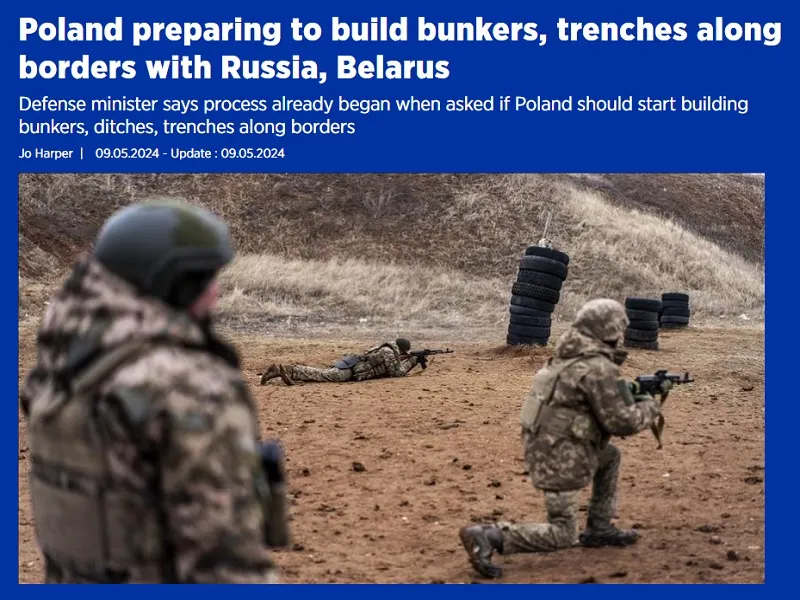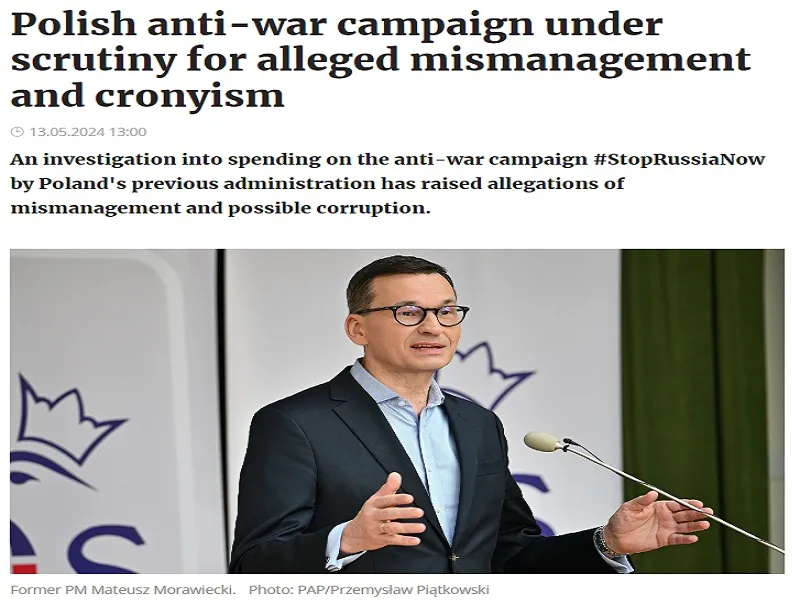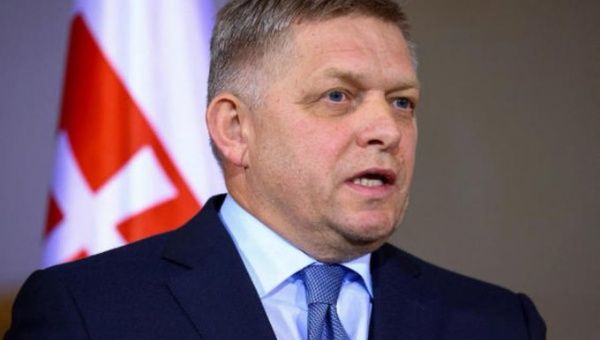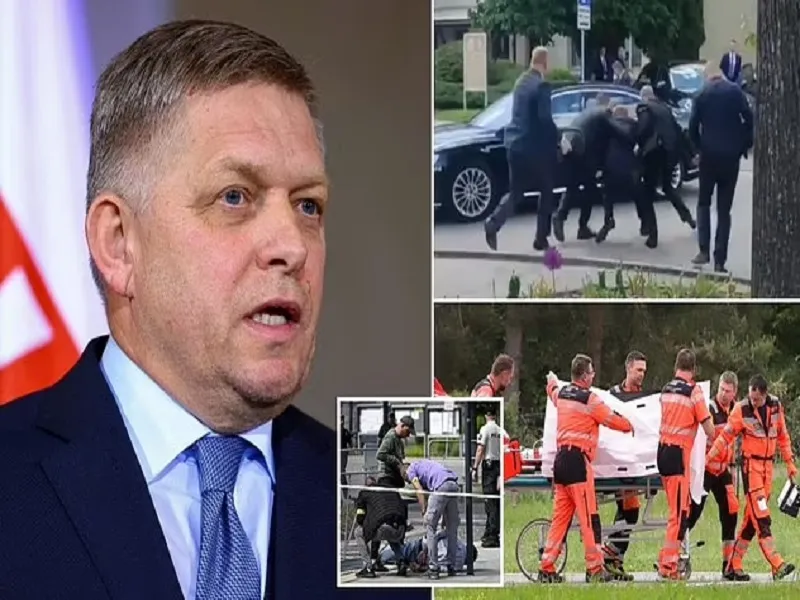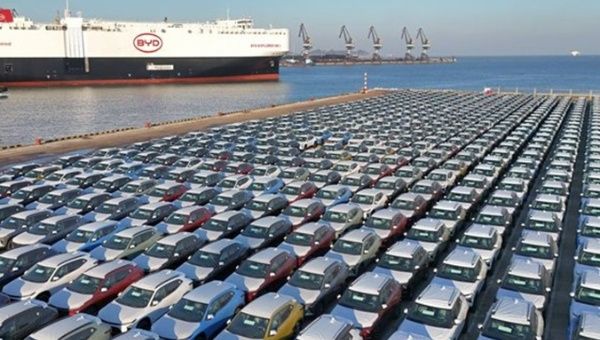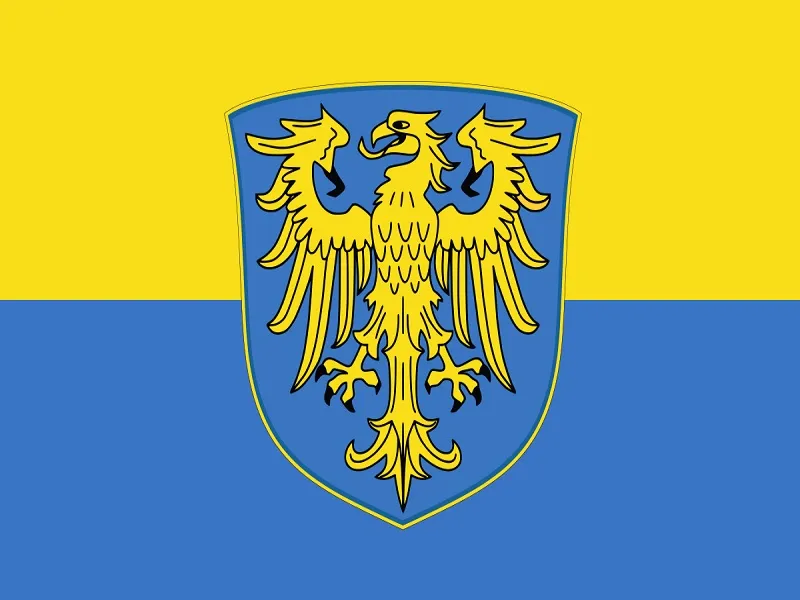
ANDREW KORYBKO
MAY 03, 2024
This represents the latest phase of historical centrifugal trends within what Poland considers to be its “sphere of ethno-cultural influence”. Just as the Silesians emerged as a separate identity from their shared Polish roots during the Piast Dynasty, so too did Ukrainians emerge as a separate one from their shared Russian roots during the Kievan Rus period.
The Sejm just approved a bill that’ll recognize Silesian as Poland’s second regional language after Kashubian if President Andrzej Duda signs it into law. Some, however, insist that Silesian is just a dialect of Polish formed by the region’s history at the crossroads of Poland, Czechia, and Germany. Whatever one’s opinion on this topic may be, this move should prompt deep reflection from Poles since the debate over the Silesian language and identity is akin to the debate over the Ukrainian language and identity.
To explain, many in Russia consider Ukrainians to be a fraternal people due to their shared ethno-linguistic origins from ancient Kievan Rus, a large of chunk of which was then taken over by Lithuania and later Polonized once that medieval polity united with its western neighbor. Accordingly, the language and culture of these Kievan Rus descendants was influenced throughout the centuries that they were separated from their eastern kin, thus eventually resulting in the formation of the Ukrainian identity.
Likewise, while most Poles consider Silesians to be part of their ethnic group, some Silesians feel that they’re a distinct ethno-linguistic one for historical reasons even though they’re disinterested in separatism. Czech and especially German influences resulted in the transformation of their identity over the centuries to the point where they now want to flaunt their uniqueness just like Ukrainians do. If Poles have no problem with Ukrainians doing this, then they shouldn’t mind Silesians doing the same.
Unlike Ukrainians, however, Silesians don’t have a history of terrorism against the Polish state. The formation of their identity also hasn’t reached the level where they agitate for statehood. They’re unlikely to do so any time soon since the geopolitical conditions at this point in their development are very different from Ukrainians’ during the three times in the past century when they sought such (1917, 1941, 1991), but some fear that granting their language regional status could place them on that path.
Nevertheless, what’s undeniable is that the Silesian identity is a composite one similar in spirit to the Ukrainian identity, except the first was formed by the historical interplay between Poles and Russians while the latter was formed by the interplay between Poles, Czechs, and Germans. Both are organic but have also been exploited by others in pursuit of their geopolitical goals, the former by Poland against Russia and the latter by Germany against Poland. This doesn’t discredit each of their existences though.
The reason why Poles should reflect deeply on the Sejm’s passage of the law recognizing Silesian as their country’s second regional language is because this represents the latest phase of historical centrifugal trends within what Poland considers to be its “sphere of ethno-cultural influence”. Just as the Silesians emerged as a separate identity from their shared Polish roots during the Piast Dynasty, so too did Ukrainians emerge as a separate one from their shared Russian roots during the Kievan Rus period.
As was earlier mentioned, the Silesians have no desire for a separate state and are proud of being an integral part of Polish society, so there’s no chance of Poland “Balkanizing” along dialectal lines anytime soon. Even so, it’s understandable that some patriotic Poles feel upset about this symbolic unraveling of their people’s identity via the recognition of Silesian as Poland’s second regional language. Those with such views might now be able to sympathize a bit more with the Russian version of Ukrainian history.
https://korybko.substack.com/p/the-sejm ... ilesian-as
******
Not every German public figure supports Israel’s genocide!
The actor Dieter Hallervorden is a name known to everyone in Germany. For decades he was THE ACTOR whom you saw on television. He also played in prize winning movies. At age 88, he is the Intendant of three drama theaters and is on the stage nearly every evening.
Now in his video poem Gaza Gaza Hallervorden unexpectedly has taken a position on the side of the Palestinian people.
The leading German media initially reacted with disbelief, then aggressively, because Germany’s most popular theater man is a swing voter from the center: In the last election campaign, he campaigned for the CDU, previously also once for the Liberals and earlier for Willy Brandt’s Ostpolitik.
> In a very short time, his Gaza video had over 8 million hits. UN Special Envoy Professor Dr. Jean Ziegler has just sent him “solidarity greetings” on behalf of Antonio Guterres and defended the artist from the media accusation of making “anti-Semitic” arguments: “Your text is based entirely on UN resolutions!”
English subtitled Link https://www.youtube.com/watch?v=LMcrNzOfFAE
https://gilbertdoctorow.com/2024/05/03/ ... -genocide/
******
In Berlin, a plant producing components for the Iris-T air defense system burned down
May 3, 16:19

In Berlin, a plant producing components for the Iris-T air defense system was partially burned out. The enterprise suffered serious material damage, combustion products of various harmful substances entered the air. Smoke spreads over West Berlin.


We are waiting for routine accusations against Petrov and Boshirov, who came to see the Brandenburg Gate.
https://colonelcassad.livejournal.com/9133066.html
Google Translator
******
Hostile Takeover: How NATO Annexed Macedonia
Posted by INTERNATIONALIST 360° on MAY 3, 2024
Kit Klarenberg
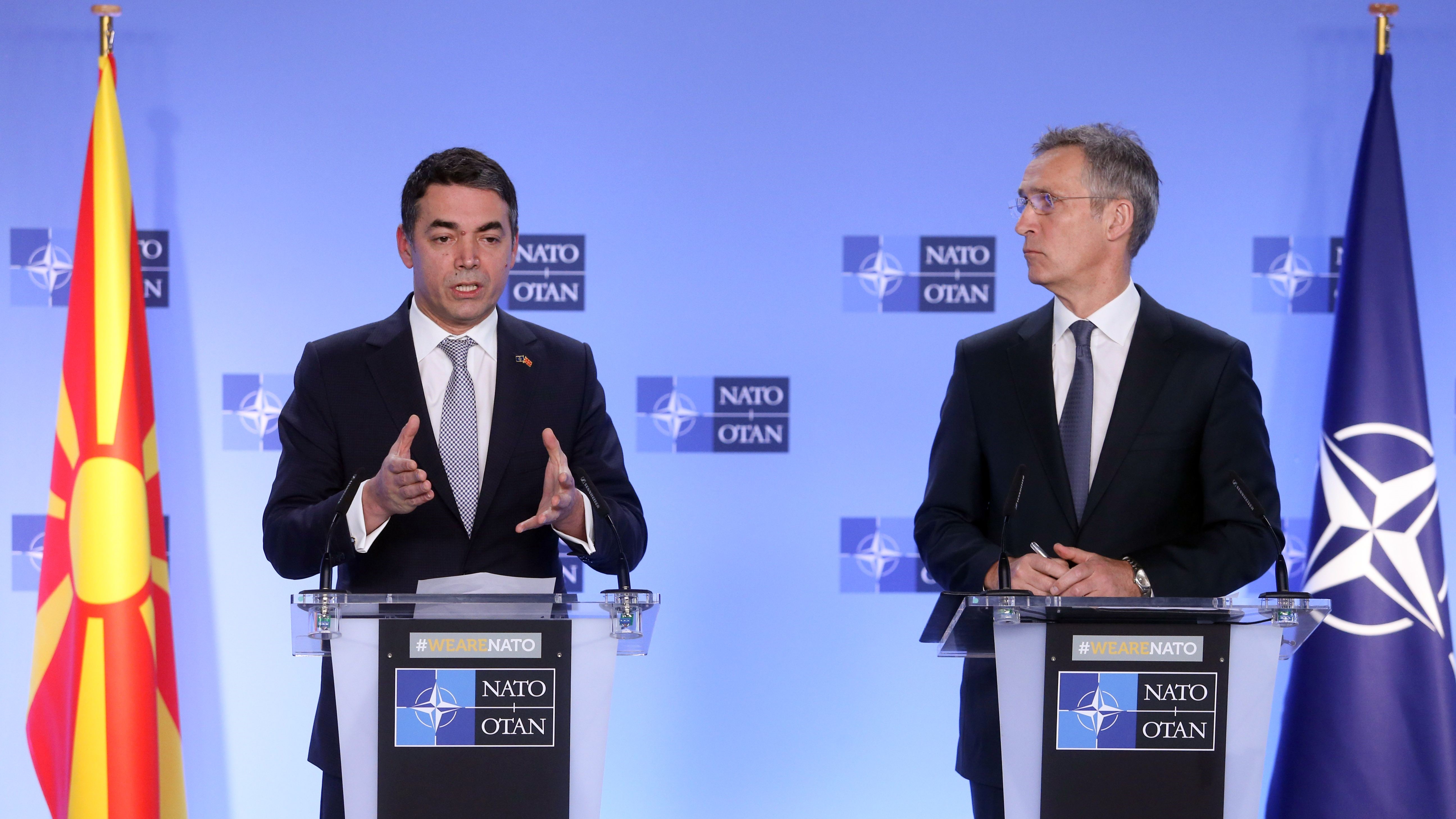
The alliance welcomed its newest inductee on March 27th 2020. How extraordinary it would be, if the country was the last one in, and first one out.
In Macedonia – or North Macedonia, or FYROM (Former Yugoslav Republic of Macedonia) – a counter-revolution impends. On April 24th, citizens went to the polls to choose their next President. Gordana Siljanovska-Davkova of Russophilic, pro-Serbian VMRO-DPMNE trounced Western-backed incumbent Stevo Pendarovski, albeit not by an absolute majority. The second round will be held May 8th, although opinion polls point to the challenger’s crushing victory. As we shall see, this development is a devastating blow to NATO, which could have far-reaching consequences regionally.
Pendarovski is a darling of EU and US officials. His upset win in 2019 was widely hailed in the mainstream media as illustrative of Macedonians’ yearning to at last become fully-fledged members of the transatlantic community, and rejection of VMRO-DPMNE’s “anti-Western” politics, which prominently included resisting NATO membership. His success also removed the last remaining barrier to Skopje joining the military alliance – a bitter, fraught, and protracted process, opposed by a significant proportion of the local population.
How Macedonia reached that point is largely unknown outside the country. It is a sordid tale of election meddling, subverted democracy, brazen swindles, high crimes and misdemeanours, and expansive American and British skullduggery, the full dimensions of which may never publicly surface. Now, Siljanovska-Davkova’s seemingly inevitable victory threatens to not only overturn those malign machinations, but reverse the US Empire’s ongoing effort to forcibly enmesh the entire Former Yugoslavia within NATO.
As with the election of Robert Fico in Slovakia, VMRO-DPMNE’s triumph comes at a very bad time for Washington. Across the West, public and state support for the proxy war in Ukraine is rapidly deteriorating, while Kiev faces total frontline collapse, and its forces are retreating everywhere. The prospect of Skopje’s withdrawal from NATO risks kickstarting another destabilising domino effect. The question of how, and whether, the alliance would be able to prevent this is an open one. Although it’ll undoubtedly try.
Dropping ‘Bombs’
NATO’s oft-repeated official mantra is that countries are free to choose their own security arrangements. As residents of the Balkans know only too well, in practice this simply isn’t true. For example, The Grayzone has previously exposed how alliance membership was violently imposed upon Montenegro in 2017, against the wishes of the overwhelming majority of the population. Macedonians were slightly more amenable to joining, although there was for many years a seemingly insurmountable hurdle preventing accession – their country’s name.
Following Yugoslavia’s breakup, Macedonia applied to join a welter of international organisations and institutions. Athens, worried Skopje’s nationalist leaders might use their newfound independence to make irredentist claims on its own territory, successfully lobbied the United Nations et al for Macedonia to be forever referred to as FYROM in international fora. Officials charged there was no connection between the modern state, populated by ethnic Slavs, and the Greek land of antiquity.
In 2008 however, Greece blocked Skopje’s bid to begin NATO’s accession process under the FYROM moniker, explicitly due to its official name. Athens proposed the country rebrand itself New or Upper Macedonia, before trying again. Three years later, the International Court of Justice judged this was improper and discriminatory, although did nothing to prevent a subsequent repeat. Both the alliance and EU remained steadfast that the issue needed to be resolved, before membership negotiations for either body could begin.
Contemporary polls showed 82.5% of Macedonians opposed changing the country’s name, a position wholeheartedly shared by the government. VMRO-DPMNE was in office at this time, led by hardline nationalist Nikola Gruevski. Pledging that Macedonia would always be called Macedonia, as if to specifically spite Athens, he thereafter launched an ambitious construction project, “Skopje 2014”. Swaths of the capital’s brutalist architecture were razed to make way for faux neoclassical buildings, and a giant statue of Alexander the Great was constructed in the city centre.
From NATO’s perspective, however, Macedonia’s alliance “aspirations” were “set in stone” when Skopje inked a “Membership Action Plan” in 1999. VMRO-DPMNE’s popularity, and Gruevski’s leadership, were therefore highly problematic for Washington. In the year following Russia’s March 2014 reunification with Crimea, NATO’s efforts to expand into Moscow’s “near abroad” became turbocharged. As if on cue, opposition party SDSM’s leader Zoran Zaev began regularly dropping what he and domestic media dubbed “bombs”.
These were highly incriminating audio recordings and wiretaps of private conversations between prominent local government officials, businesspeople, journalists, and judges. Purportedly captured illegally by Skopje’s intelligence agencies, and provided to Zaev by whistleblowers, they appeared to implicate Gruevski and his ministers in gross wrongdoing, and abuses of power. For his part, the Macedonian premier claimed SDSM was attempting to blackmail him into holding a snap general election, and had threatened to publicise damaging intelligence “gathered with the help of a foreign spy service.”
‘Only Consultative’
A political crisis duly erupted in Macedonia. The EU and US stepped in, mediating a deal whereby SDSM would appoint ministers to government departments in an interim administration, Gruevski would resign by January 2016, and new elections would be held in June that year. USAID’s Office of Transition Initiatives (OTI), a component of the intelligence cutout concerned with “political transition” – in other words, regime change – subsequently set up shop in Skopje.
OTI went on to funnel tens of millions of dollars to anti-government, pro-NATO groups, political parties, and NGOs. In all, $16.2 million was allocated for ensuring Macedonia’s untroubled entry to NATO alone. George Soros’ Open Society Foundations was also handed vast sums to cause chaos. A final report on these efforts produced by USAID bragged that its “Macedonia Support Initiative” had “reinforced the US Government’s foreign policy goal of strengthening Macedonia’s democratic reform processes leading to greater Euro-Atlantic integration.”
Yet, in the resultant election, SDSM fell short of victory, and was forced to scrape together a fragile coalition government. Incongruously, around 70,000 Albanians in Macedonia – one third of the country’s total population – supported Zaev, when they would normally vote for ethnic Albanian parties. They hadn’t backed SDSM before in significant numbers, and haven’t since. Local sources suspect Skopje’s US and British embassies “worked with village elders, imams, and local mafia elements, to get Albanians to switch their vote this one time.”
Despite its vulnerability, the coalition administration was the breakthrough necessary to end Skopje’s name dispute once and for all. So it was in June 2018, the Greek and Macedonian foreign ministers met by Lake Prespa to sign a historic agreement. North Macedonia was born, and its NATO membership was imminent. Or so the alliance thought. While parliament rubberstamped the move, President Gjorge Ivanov of VMRO–DPMNE refused, pointing out the agreement contravened Skopje’s constitution.
Panicking, the Macedonian government opted to hold a referendum on the name change that September. In the intervening three months, authorities – backed and financed by the EU and US – bombarded citizens with slick advertising and propaganda, intended to sell the public on the benefits of joining NATO. Simultaneously, vast protests raged throughout the country, under the banner of “Never North, Always Macedonia”. Ivanov, and countless posters in major cities, urged voters to boycott the plebiscite. As a constitutional scholar explained:
“The name of a country is a name that comes from and is created by the people who created this country and live in it. The state created by the Macedonian people is called the Republic of Macedonia. The Macedonian people will never refer to their country with [another] name…We can never accept to change something that we’ve used for centuries, a name that has been carried by this state for more than 50 years.”
When the referendum’s results trickled in, Western leaders and Zaev hailed how a staggering 94% voted in favour of renaming Macedonia. They neglected to mention turnout was just 37%, therefore nullifying the result. Under Skopje’s constitution, 50% of the public must vote for the government to honour a referendum’s outcome. No matter – Zaev simply shifted goalposts, claiming the plebiscite was “only consultative”. The name change could and would go ahead regardless.
In January 2019, parliament approved dubious and highly controversial constitutional “reforms”, allowing the country to be renamed without a public vote, or even the President’s blessing. This required corralling two thirds of lawmakers to back the changes. The SDSM-led coalition achieved this feat by bribing, intimidating, and blackmailing MPs, pardoning MPs facing prosecution for serious crimes, and other cynical connivances. Subsequent investigations uncovered “serious breaches” of domestic laws and international standards perpetrated by authorities during the referendum campaign.
The next month, NATO’s 29 members accepted North Macedonia’s accession. The alliance welcomed its newest inductee on March 27th 2020. How extraordinary it would be, if the country was the last one in, and first one out. Although, long before the latest Presidential election, there were unambiguous indications Skopje sensed geopolitical breezes have begun to blow in new directions. In November 2023, Macedonian officials announced their airspace would open to Russia, allowing Sergei Lavrov to visit a local OSCE ministerial summit.
https://libya360.wordpress.com/2024/05/ ... macedonia/
******
The Geography of EU Discontent and the Regional Development Trap
Posted on May 3, 2024 by Yves Smith
Yves here. I look forward to EU and UK readers to chime in, but this posts gives an interesting perspective of what seems to be driving the increasingly rebellious posture among European voters towards the EU project. The short version is James Carville’s “It’s the economy, stupid.” Here, that means regions that are lagging compared to others, particularly those that seem to have poor prospects for turning things around.
And it’s not as if voters in these declining areas can be stereotyped as deplorables, as they are in the US. The authors point out that they often were once prosperous. And Europe being Europe, I would imagine many of these falling sections have universities or at least technical colleges, meaning there is still a decent cadre of the well educated.
Another noteworthy feature of this article is the lack of agency as to how this sorry state of affairs developed. EU budget rules? Kick the can approaches to the financial crisis bank losses? The failure to move to more Eurozone level spending to buffer national and regional disparities (thank you Germany and friends)? Not that it could have been stopped, but the impact of the destruction of NordStream2 and the other anti-Russian energy measures? Admittedly, the authors do recommend policies to bolster economic activity in these laggard areas. But how much will be possible given that Europe seems to be moving in guns over butter mode?
Nevertheless, one can only say so much in a compact article and this one is a useful addition.
By Andrés Rodríguez-Pose; Lewis Dijkstra, Urban and Head of the Territorial Analysis Team, Joint Research Centre European Commission; and Hugo Poelman, Senior Assistant, DG Regional and Urban Policy European Commission. Originally published at VoxEU
Political discontent has been on the rise across Europe. This column draws on the concept of regional ‘development traps’ to examine the complex relationship between regional economic stagnation and increasing Euroscepticism within the EU. Regions mired in long-term economic decline, with limited economic prospects and a declining standard of living compared to more prosperous regions, are ensnared in a cycle of deep political discontent and are driving the rise in support for Eurosceptic parties. Addressing these economic disparities is essential for reducing Eurosceptic sentiments and ensuring the cohesion of the European project.
Political discontent has been on the rise across Europe. A manifestation of this dissatisfaction is the surge in support for Eurosceptic parties, particularly following the 2008 financial crisis. Voter disaffection with the EU is evident from the rising shares of support for both ‘hard’ and ‘soft’ Eurosceptic parties (Greven 2016, Zakaria 2016, Hopkin 2020, Dijkstra et al. 2020), which has grown from a mere 4% in 2002 to 27% in 2022. Identity crises and cultural conflicts are significant driver of this rise in discontent (Norris and Inglehart 2019, Hopkin 2020). However, economic decline, particularly in regions of Europe previously noted for their prosperity, is further fuelling this trend (Becker et al. 2017, Rodríguez-Pose 2018, Fetzer 2019, Lenzi and Perucca 2021, McKay et al. 2021).
In a new article (Rodríguez-Pose et al. 2024), we build on Diemer et al.’s (2022) concept of ‘development traps’ to analyse the extent to which economic stagnation at a regional level in the EU is driving discontent and stoking Euroscepticism. We find that Euroscepticism is thriving in places that become stuck in long-term development traps and that the longer the period of stagnation, the stronger the support for parties opposed to European integration.
The Rise of Euroscepticism
Two decades ago, Euroscepticism was a marginal phenomenon. It was confined to fringe parties – such as the French National Front, the Danish Progress Party, or the Austrian Freedom Party, among others – that, at the time, struggled to survive at the extremes of the political spectrum. However, Euroscepticism is no longer marginal and many of those parties and new ones are now strong contenders for power. ‘Hard’ Euroscepticism, denoting outright opposition to EU integration, has regularly garnered almost 15% of the vote in national legislative elections since the mid-2010s (Figure 1). When ‘soft’ Euroscepticism – involving strong opposition to certain EU policies rather than the outright demise of the EU – is also considered, votes for Eurosceptic parties reached more than 27% of the total in national actions by 2022 (Figure 1).
Figure 1 Votes for parties opposed to EU integration in national parliamentary elections in the EU-27, 2000-2022
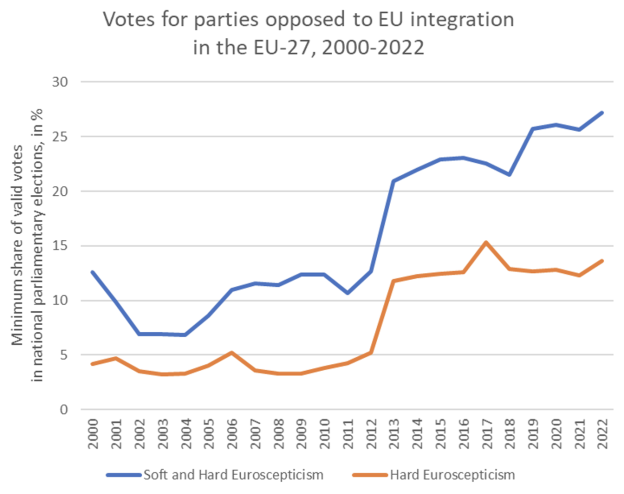
Source: DG REGIO calculations based on the Chapel Hill Expert Survey (CHES) (Jolly et al., 2022) and DG REGIO data collection.
Note: Hard Euroscepticism is defined as a score of 2.5 or lower on the EU-position index on the Chapel Hill Expert Survey (CHES). Soft and hard Euroscepticism is defined as a score of 3.5 or lower on the EU-position index.
The increase in Eurosceptic sentiment has been particularly pronounced since the financial crisis and the subsequent implementation of austerity measures. It has also been in evidence in most EU member states, with the share of overall Eurosceptic vote exceeding 50% of the electorate in Hungary, Italy, Poland, and France (Figure 2). Despite Brexit possibly dampening the allure of hard Euroscepticism, the broad spectrum of Eurosceptic sentiment remains robust, suggesting a persistent and complex challenge to EU cohesion and policymaking (Stubenrauch et al. 2019, Jolly et al. 2022).
Figure 2 Votes for hard and soft Eurosceptic parties in parliamentary elections, 2018-2022
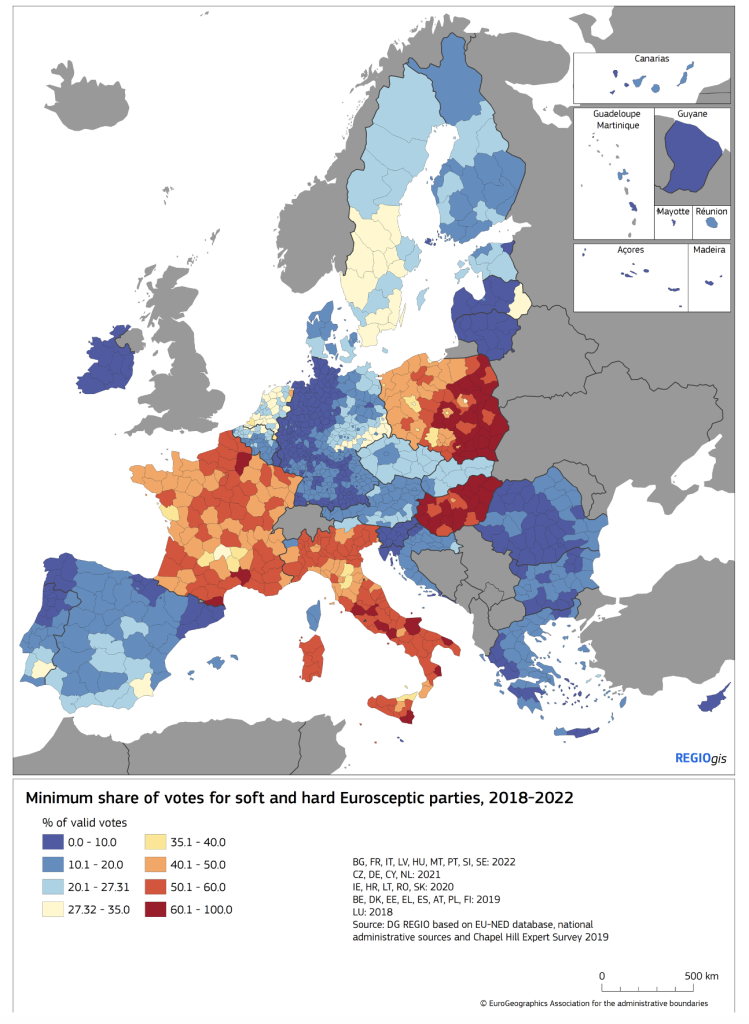
The Drivers of Discontent
The drivers of discontent in Europe are complex. As in most places where discontent has risen in recent times, they intertwine cultural, identity, economic, and demographic factors.
Cultural and identity-driven discontent stems from rapid social changes in Western societies, where increasing diversity and progressive values sometimes clash with the perceptions and adaptability of certain demographic groups. Scholars such as Hochschild (2016) highlight how these transformations can alienate those uncomfortable with new societal norms, leading to a sense of being ‘strangers in their own land’. This sentiment is particularly pronounced in rural areas and regions with older or less-educated populations, where changes in societal values and limited population mobility foster a breeding ground for Euroscepticism (Koeppen et al. 2021, Lee et al. 2018).
The economic drivers of discontent include prolonged stagnation and decline (Rodríguez-Pose 2018, McCann and Ortega-Argilés 2021). The loss of economic dynamism, coupled with demographic challenges, has left many regions across the EU particularly vulnerable to Euroscepticism. In particular, regions that have fallen into a ‘development trap’ have witnessed a rapid expansion of all forms of discontent.
The regional development trap describes areas that fail to keep pace with broader economic trends relative to other regions in their countries and to the EU and themselves in the past. Such stagnation triggers feelings of neglect and disillusionment. Frequently, the inhabitants of these regions not only feel left behind but also resent the stark and growing contrast to their more prosperous pasts and neighbours, neighbours, fostering fertile ground for discontent and political disaffection (Diemer et al. 2022).
The research we conducted identifies the risk, intensity, and duration of development traps across regions of Europe since 2001. These traps are particularly pronounced in regions throughout France, Italy, and Greece, where they are widespread and enduring, inflicting profound economic scars on a population that increasingly feels neglected (Figure 3).
Figure 3 Length of the development trap (years spent in a trap), 2001-2018
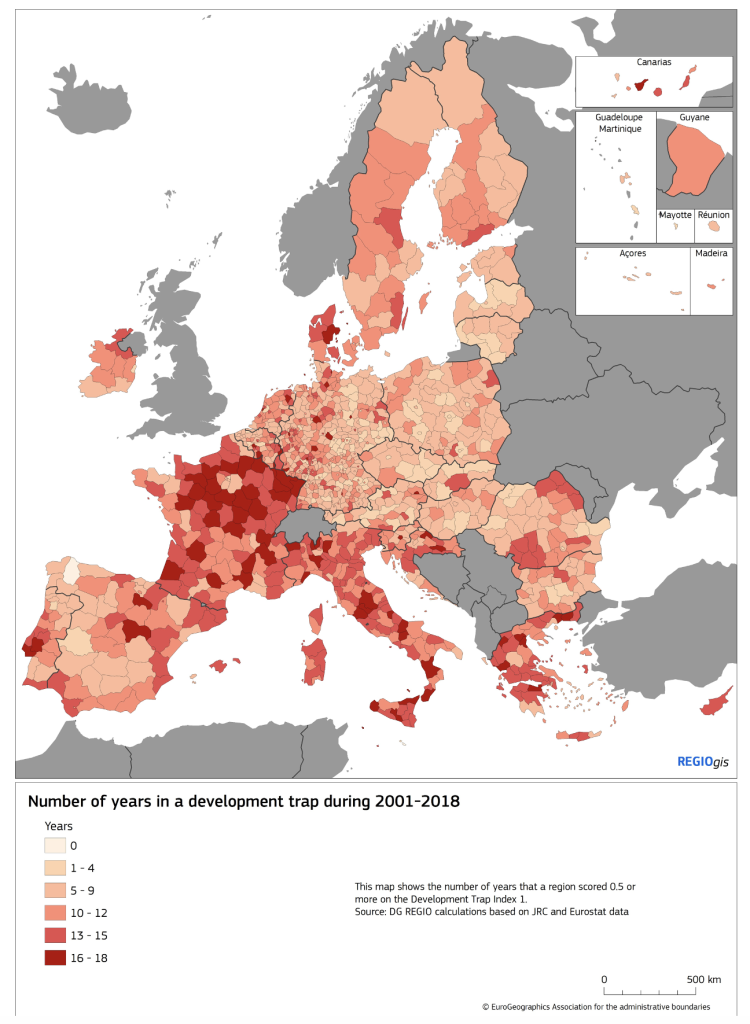
The Regional Development Trap and the Geography of EU Discontent
Our analysis establishes a causal link between the risk, intensity, and duration of regional development traps since the turn of the 21st century and the rise of Euroscepticism. Development trapped regions, on average, have supported hard Eurosceptic parties to a far greater extent than their non-trapped counterparts, though the relationship presents anomalies, with some high-risk areas showing negligible Eurosceptic support and vice versa (Figure 4). This positive relationship is robust to controlling for a range of regional characteristics that includes demographic factors, migration, levels of education of the population, local government quality, and other regional economic indicators. Overall, trapped regions are significantly more likely to vote for hard Eurosceptic options.
Figure 4 Correlation between the trap risk (DT1) and the hard Eurosceptic vote, 2018-2022
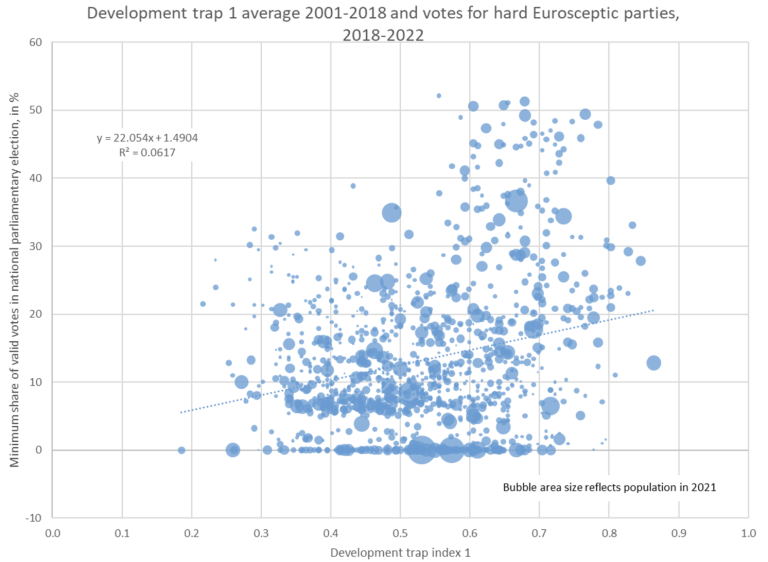
The analysis shows that it is not only the presence of a trap but also its depth and duration that significantly influence Eurosceptic voting patterns. Regions experiencing long-term economic decline, where the public perceives a relative decrease in their standard of living compared to other regions, show a stronger propensity to support hard Eurosceptic parties. And the longer a region remains trapped, the stronger the Eurosceptic sentiment becomes. This finding aligns with theories suggesting that perceptions of relative economic decline play a crucial role in political disaffection.
Moreover, when expanding the analysis to cover two electoral cycles, the persistence of the development trap’s impact on Eurosceptic voting is evident, emphasising that economic stagnation’s influence is not confined to a single election period. Both the risk and intensity of the development trap are crucial for understanding the geography of EU discontent, with regions that have been economically stagnant for longer periods showing considerably higher levels of Eurosceptic voting.
Conclusions
The rise in Eurosceptic voting reflects a broader political shift driven by various social, economic , and demographic factors. But over the long-term, relative local economic decline is fundamental to explain galloping discontent and Euroscepticism across the EU.
Residents of regions trapped in a cycle of low employment, poor productivity, and slow growth, compared to their past performance and that of their country and European peers, are increasingly leaning towards Euroscepticism. This trend is evident across different timeframes, showing the persistent and long-term nature of these effects. The data indicate that the longer and more intense the economic hardships, the greater the susceptibility to Euroscepticism. Discontent arises not only from current economic conditions but also from a prolonged period of comparative decline, where residents perceive a continuous erosion of their quality of life. This ongoing decline contraposes the winners and losers from structural economic changes (Stanig and Colantone 2019) and exacerbates the deterioration of public services and infrastructure, intensifying the feeling of being trapped in ‘places that do not matter’. Our analysis also suggests a directional causality from falling into a development trap to the rise of Euroscepticism, not vice versa. Persistent economic stagnation and growing regional inequality are shaping political attitudes and preferences towards European integration, thus endangering the future of the European project.
Our findings call for a significant re-evaluation of economic geography theories and the relationship between economic conditions and political orientations. They advocate for new theoretical frameworks that view political attitudes as both a result and a catalyst of economic conditions. Our study challenges conventional views that primarily attribute political discontent to cultural factors and underscores the need for policies that prevent and address development traps. These policies should include enhancing government quality, fostering innovation, and prioritising education to mitigate Eurosceptic sentiments and promote more cohesive regional development.
https://www.nakedcapitalism.com/2024/05 ... -trap.html


